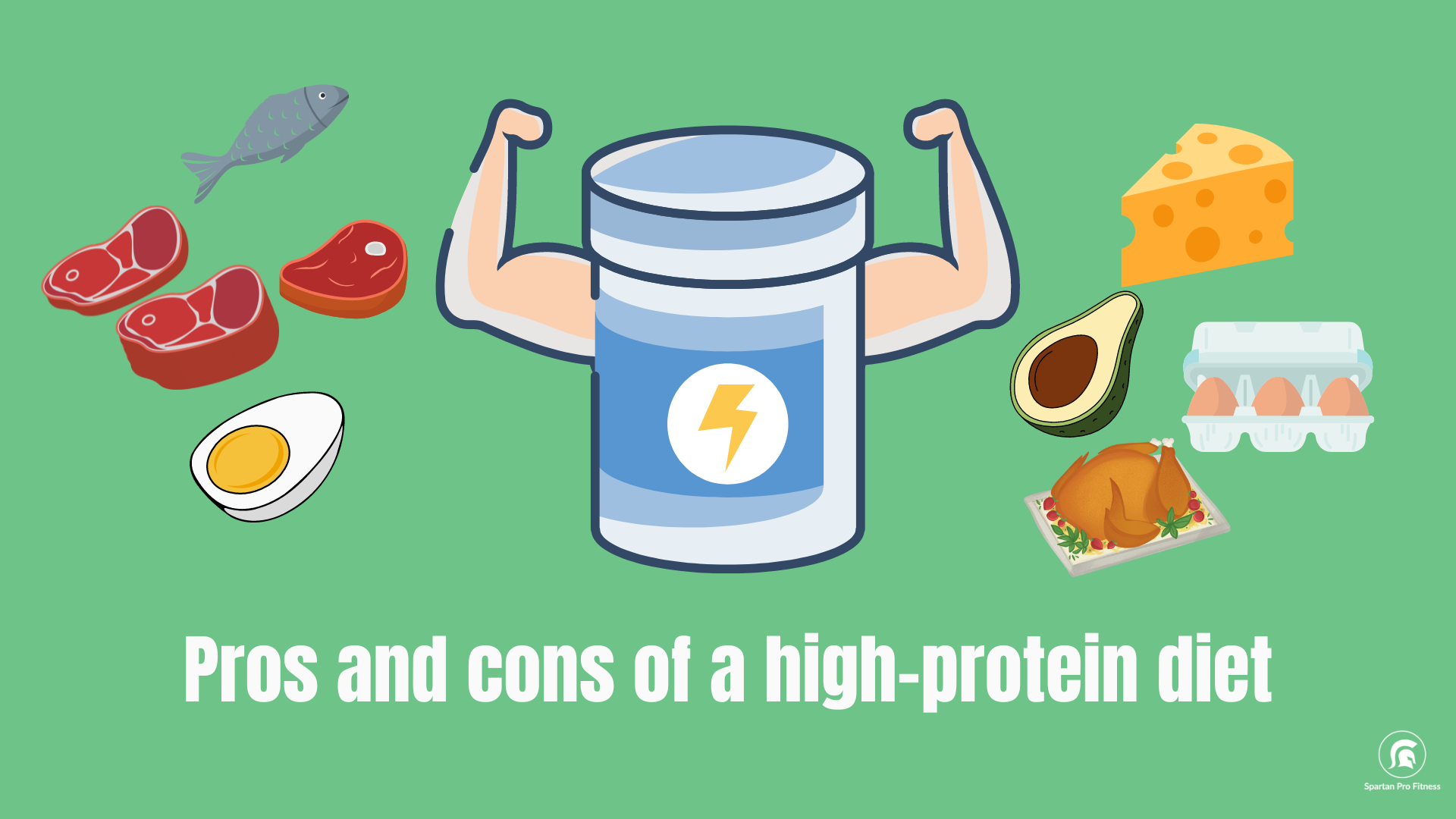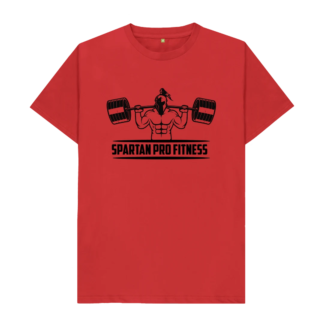
Deciding what kind of diet to follow can be a daunting task. There are so many different options out there, and it’s hard to know which one is right for you. If you’re thinking about following a high-protein diet, read on to learn about some of the potential benefits and drawbacks of this type of eating plan.
What is a high-protein diet?
A high protein diet is one that emphasises foods high in protein. This can include meats, fish, poultry, eggs, dairy, beans, nuts, and seeds. Proponents of this type of diet claim that it can help with weight loss, build muscle, and improve energy levels. However, there are also some downsides to consider before starting a high protein diet. These include potential kidney damage, increased cancer risk, and difficulty getting enough fibre and other nutrients.
Pros of a high-protein diet
A high protein diet has a lot of pros, including:
- It can help you lose weight. A high protein diet can help you lose weight by making you feel fuller longer and helping to reduce your overall calorie intake.
- It can help you build muscle. Protein is essential for muscle growth, so a high protein diet can help you build muscle mass.
- Muscle maintenance. Protein is essential for maintaining muscle mass, so a high protein diet can help you keep your muscles healthy as you lose weight.
- Improved mental health. A high protein diet has been linked with improved mental health, including reduced anxiety and depression.
- It can help reduce your risk of heart disease. and type 2 diabetes. A high protein diet has been linked with a reduced risk of several diseases, including heart disease, stroke, and diabetes.
Alternatives to a high-protein diet
A high protein diet has many benefits, including helping you to lose weight and reducing your risk of chronic diseases. However, it’s not the only type of diet out there. If you’re looking for an alternative to a high protein diet, here are a few options to consider.
1. The Paleo Diet: The Paleo diet is based on the premise that we should eat like our ancestors did. This means consuming mostly fruits, vegetables, meat, and fish. There are no processed foods allowed on the Paleo diet.
2. The Mediterranean Diet: The Mediterranean diet is based on the eating habits of people who live in the Mediterranean region. This diet includes plenty of fruits, vegetables, whole grains, fish, and olive oil.
3. The Vegetarian Diet: The vegetarian diet is based on avoiding all animal products, including meat, poultry, fish, and dairy. Instead, vegetarians focus on eating plenty of fruits, vegetables, grains, and beans.
4. The Vegan Diet: The vegan diet is similar to the vegetarian diet in that it avoids all animal products. However, vegans take things one step further by also avoiding all animal-derived products, such as honey and eggs.
High protein diet recipes
If you’re looking for some high protein diet recipes, look no further! Here are some of our favourites:
1. Chicken and broccoli stir-fry: This classic dish is a great way to get your protein fix. Simply cook up some chicken breast and broccoli in a stir-fry sauce and you’re good to go.
2. Salmon with quinoa and kale: This healthy meal is packed with protein, thanks to the salmon. Quinoa and kale add some extra fibre and nutrients, making it a well-rounded dish.
3. Turkey burger with sweet potato fries: This hearty meal will definitely fill you up. The turkey burger is a great source of lean protein, while the sweet potato fries add some complex carbs to the mix.
4. Protein pancakes: These pancakes are a great way to start your day on a high protein diet. They’re made with protein powder, so you’ll be getting a good dose of protein first thing in the morning.
5. Beef and black bean enchiladas: These enchiladas are filled with beef and black beans, giving you plenty of protein and flavour. Serve them with some brown rice and veggies on the side for a complete
Cons of a high-protein diet
A high protein diet has its pros and cons. Some people may feel great on a high protein diet, while others may not. Here are some of the cons of a high protein diet:
1. You may miss out on important nutrients.
If you eat a lot of protein, you may miss out on important nutrients that are found in other foods, such as fruits, vegetables, and whole grains.
2. You may not get enough fibre.
Fibre is important for keeping your digestive system healthy. If you eat a lot of protein, you may not get enough fiber in your diet.
3. You may have trouble digesting all the protein.
Your body can only use a certain amount of protein at one time. The rest is stored as fat or excreted in your urine. This can lead to weight gain and other problems such as kidney stones.
4. You may put strain on your kidneys.
High protein diets can put strain on your kidneys, especially if you have kidney disease or are at risk for it. If you have kidney problems, you should talk to your doctor before starting a high protein diet
5. Cancer Risk.
Some studies have suggested that a high-protein diet may increase your risk of cancer, although more research is needed in this area.
What are the best sources of protein?
When you’re looking to up your protein intake, it’s important to choose sources that are not only high in protein, but also nutritious. Here are some of the best sources of protein:
- Eggs: One large egg contains six grams of protein, as well as minerals like zinc and iron.
- Fish: Salmon and other fatty fish are not only a great source of protein (with around 20 grams per 3 ounce serving), but also omega-3 fatty acids, which are great for your heart and brain health.
- Chicken: Lean chicken is an excellent source of protein, with around 26 grams in a three ounce serving. It’s also low in fat and calories, making it a great option for those watching their weight.
- Beans: Beans and legumes are not only high in protein (around 15 grams per half cup), but also fibre, which is important for keeping you feeling full and preventing constipation.
- Nuts and nut butters: A handful of nuts make a great snack, and adding nut butter to toast or celery sticks is an easy way to up your protein intake. Almonds, peanuts, and cashews are all good choices.
- Greek yogurt: A great source of both protein and probiotics, Greek yogurt makes a perfect snack or addition to breakfast or lunch. Look for brands with at least 10 grams of protein per serving.
How much protein should you eat per day?
If you’re thinking about starting a high-protein diet, there are a few things you should consider first. Protein is an essential nutrient that helps your body repair and grow cells, but eating too much protein can have some drawbacks.
On the plus side, a high-protein diet can help you lose weight and build muscle mass. Protein is more filling than other macronutrients like carbohydrates and fat, so you may find yourself eating less overall. And since muscle burns more calories than fat, a high-protein diet can also help increase your metabolism.
But there are some potential downsides to consider as well. A high-protein diet can put strain on your kidneys and cause dehydration, constipation, and bad breath. You may also be at risk for heart disease and other health problems if you consume too much animal protein.
So how much protein should you eat per day? The amount varies depending on your age, activity level, and other factors, but the general recommendation is 0.36 grams per pound of body weight (or 0.8 grams per kilogram). So if you weigh 150 pounds (68 kilograms), you should aim for 54 grams of protein per day.
Conclusion
A high-protein diet has its pros and cons, but ultimately it is up to the individual to decide whether it is the right diet for them. Those who are looking to lose weight or build muscle mass may find that a high-protein diet helps them reach their goals, while those who are trying to improve their overall health may want to focus on other types of diets. No matter what your goals are, be sure to speak with a doctor or nutritionist before before making any major changes to your diet.



[…] animal products, there are plenty of plant-based options available. Here are some recipes for high-protein meals that get their protein from […]